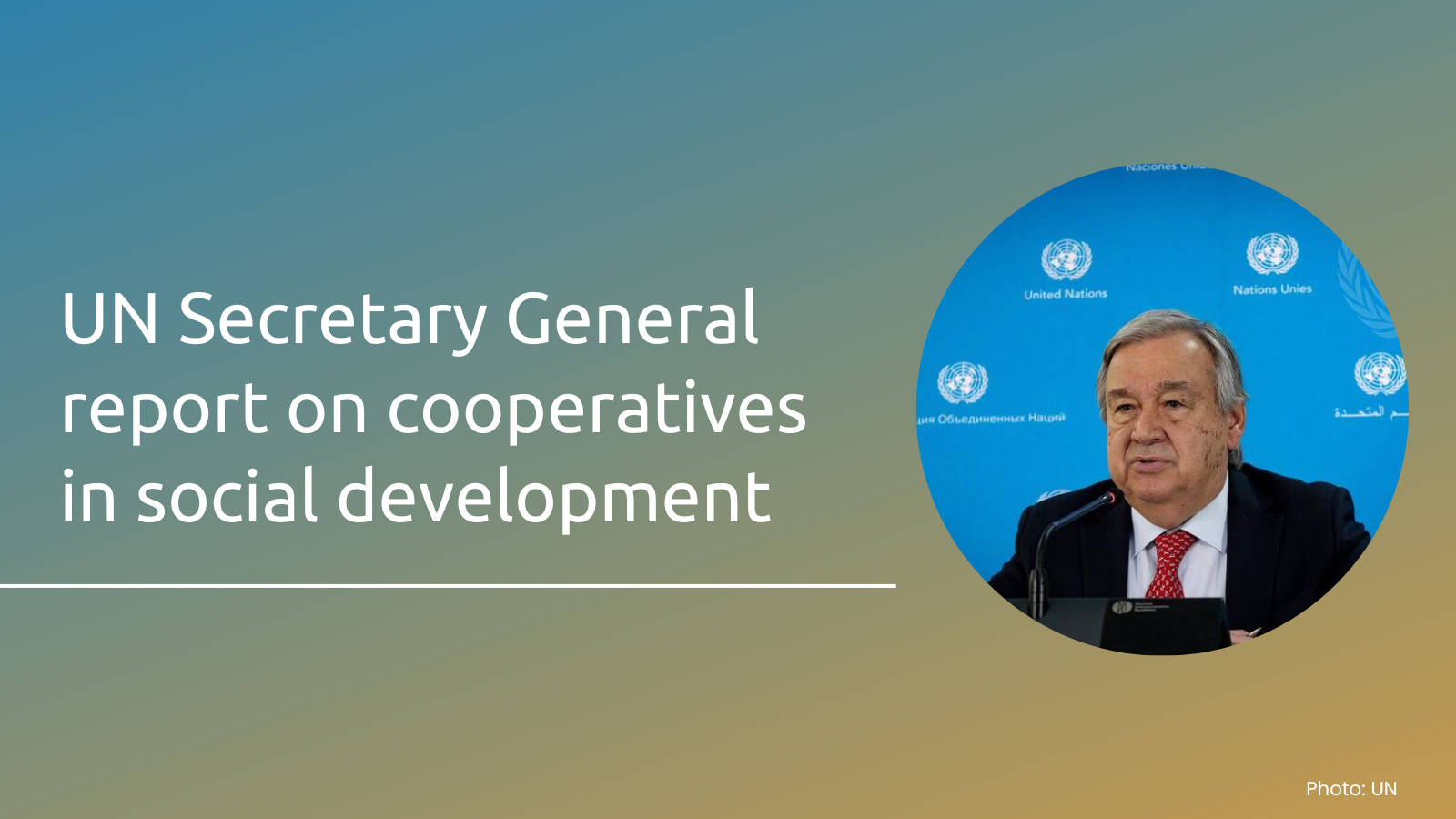The 2023 UN Secretary General report on cooperatives in social development outlines key policies and actions that can assist cooperatives realise their full potential to help countries achieve the Sustainable Development Goals (SDGs), particularly by providing decent jobs, advancing poverty eradication and promoting environmental sustainability.
Key Insights from the Report
The 2023 report uses the entrepreneurial ecosystem approach to analyse the elements that can be addressed by Member States to create an enabling environment for cooperatives to thrive and maximise their positive impact as agents of economic and social development. Based on the results of the 2021 survey conducted by the UN Department of Economic and Social Affairs on activities implemented during the International Year of Cooperatives in 2012, the report identifies five key elements of an entrepreneurial ecosystem that could be targeted by policymakers, which are the following:
- Legislation, policies and institutions of support to cooperatives
- Education and capacity-building
- Cooperative culture
- Funding and finance
- Networks and partnerships
The need to strengthen data and statistics on cooperatives is further stressed as essential to support a dynamic entrepreneurial ecosystem.
Case studies
The report offers a wealth of insights into the role of cooperatives in economic and social development, by stressing their impact in poverty alleviation, employment creation, gender equality, environment protection, and the promotion of sustainable communities. It features two cooperative examples: Mondragon Corporation in Spain and the Kibbutz movement in Israel.
Conclusions and recommendations
The report closes with a set of policy recommendations that Member States may wish to adopt in supporting cooperatives as sustainable and successful business enterprises, which are the following:
- To use the entrepreneurial ecosystem approach in identify the actions necessary to support cooperatives as successful business enterprises;
- To collect comprehensive and internationally comparable data on the role of cooperative enterprises in economic and social development and the implementation of the SDGs;
- To integrate cooperatives in national development plans and Sustainable Development Goal reporting processes, in national consultations on social and economic policies and in voluntary national reviews submitted for the High-Level Political Forum on sustainable development;
- To provide policy analysis, technical support and capacity-building assistance to promote the continued growth of cooperatives for the achievement of sustainable development.
With this report in hand, Member States have a blueprint for supporting cooperatives as they continue to make meaningful contributions to social development.
This report is a result of the discussion within the Expert Group Meeting (EGM) on Cooperatives in Social Development that was organised by the UN Department of Economic and Social Affairs (UN DESA).
The 2023 report was published following the 2021 General Assembly Resolution 76/135 and was presented to the 78th UN General Assembly held between September 18-26.
It is available in Arabic, Chinese, English, French, Russian, Spanish and Turkish (the latter translated by the ILO Ankara Office). Find all versions here.

